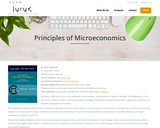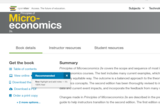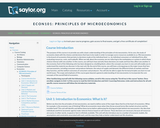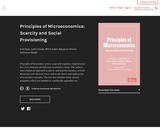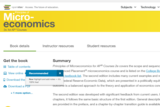With this free video resource, students will be exposed to the economic way of thinking. Students will understand how to use economics in their lives and, ultimately, you’ll see the world differently-- all through engaging Hollywood production style videos.
Educators can use MRU's videos in a variety of ways, to include “flipping” the classroom, as study aids, supplementary material, concept reinforcement, or even as a full course offering.
In MRU's Principles of Microeconomics course, covers fundamental concepts like supply and demand and equilibrium. We also answer questions such as: How are prices determined? What did Adam Smith mean when he said the market process works like an “invisible hand”? How is it that we have access to fresh roses in very cold cities every Valentine’s Day? All key topics are covered to include competition, monopoly, price discrimination, externalities, public goods and more.
There are no prerequisites for this course, and it is accessible to beginners.
------------------------------------
What is Marginal Revolution University (MRU)?
Many of us can remember our first great economics teacher who fundamentally changed how we see the world. At MRU, we try and deliver that experience to millions worldwide through video.
Founded as a nonprofit in 2012 by George Mason University economics professors Tyler Cowen and Alex Tabarrok, MRU is building the world’s largest online library of free economics education videos -- currently weighing in at more than 800 videos.
